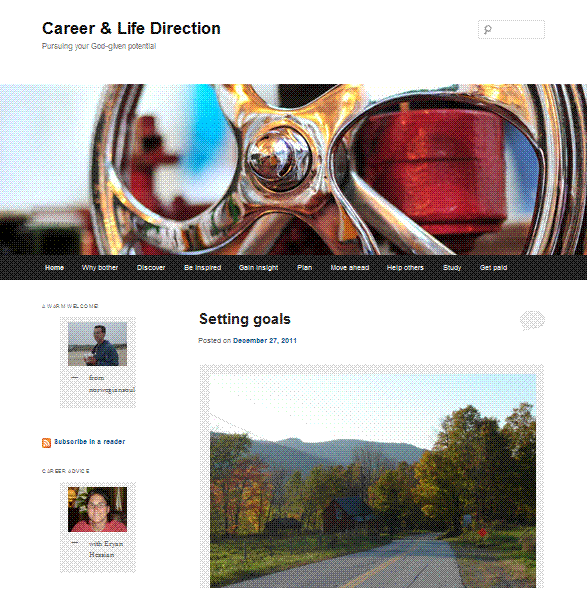Facing adversity
- At September 15, 2018
- By Nathan
- In Effective living
 0
0

Adversity can be overwhelming but it can also function as a friend.
Hmm. What do you think about that statement?
This awkward observation might not seem to count for much when a new difficulty suddenly turns up on the horizon or an old and enduring issue just will not go way. Pointing out the positive potential of a painful situation may sound inappropriate and incredibly insensitive to some. But it’s worth remembering just the same, in the midst of daily life and even during the latest collective crisis or serious personal dilemma.
Hard times can actually help.
While a very small percentage of people on the planet may live, or appear to live, relatively problem-free lives, most mere mortals will have to face one perplexing form of adversity after another culminating with the daunting experience of death. Isn’t that an encouraging thought? Sure, there is more to life than endless struggles and difficulties. But hardship is still present more often than not whether we like it or not; it’s part of the ancient package.
People that acknowledge God may be tempted to think that this good and powerful personal being exists primarily to make life easier and to facilitate lasting personal and group success. Of course it all depends how you define this term and when.
But how many prominent characters in the Bible had easy lives?
Aside from the assorted kings listed and a few powerful religious leaders, maybe two or three? Life was arguably quite satisfying for famous individuals like Joseph, Paul and Mary, etc. but their experience was often difficult, incredibly challenging and difficult, nonetheless.
Know anyone who has been sold as a slave by their own family members? When was the last time you heard of someone being stoned with real stones? Ever had to flee to another country because some local tyrant was trying to kill your kids?
Hello adversity!
Affliction is a good man’s shining time. – Edward Young
All too often adversity comes across as one more meaningless and far less enjoyable experience stacked up alongside all the others. Unfortunately, many are tempted to get out or at least check out if they can. After all, euthanasia is now legal in Canada and hundreds of marijuana stores will be opening soon.
This is to say that the potential value of adversity can be denied by fuzzy religious thinking or distorted by plain old-fashioned secular dogma.
How does adversity function as a friend? Anyone interested in a more detailed treatment of this topic might want to read How to Handle Adversity by Charles Stanley. However, the main point to remember is that adversity can serve as a powerful and positive teaching tool.
In other words, it can improve your perspective.
For example, a lack of tangible and visible success can make a person realize that it was all overrated and somewhat hollow and shallow as a primary objective and measure of self-worth in the first place. It is critically important to have basic needs met. But beyond that, so what if one temporary human being manages to obtain a little more social status, if obtaining higher status is largely what human activity is all about, than another.
In the larger scheme of life…really, who cares? There must be another objective.
So often the level of success each person is able to reach is dependent on many issues and realities beyond their control. This is not to downplay the role of persistent personal effort. But it is necessary to acknowledge the role of multiple external factors. If your country has a very high level of unemployment it is going to be that much more challenging to find a job. And if adequate financial resources are lacking, moving to another country will be very difficult if not impossible.
Experiencing adversity can result in a serious and much needed reevaluation of the overall place of public approval and personal acclaim. It is dangerous to not care at all about what other people think. But it is also possible to place far too much stock in other people’s opinions. Having recently read books about John F. Kennedy, Richard Nixon, Margaret Thatcher, Winston Churchill, Bill Clinton, Ronald Reagan, George Washington, Elizabeth Bowes-Lyon/The Queen Mother, George H.W. Bush and George W. Bush, it is quite clear that public figures should expect a measure of determined opposition.
This is par for the course.
Certainly leaders as well as ordinary citizens can make serious mistakes and may need to feel the weight of public disapproval in order to be motivated to change their behaviour. But a significant percentage of journalists are not going to approve of the current American president no matter what he does. And some people are just not going to like you either. That’s life.
Being on the receiving end of vocal or more subtle opposition may not necessary mean that you are at fault. Not at all. On the contrary, it may indicate that you are doing exactly what needs to be done. It is valuable to learn how to carry on in the face of persistent opposition. Adversity can serve to clarify what is worth metaphorically or literally fighting for.
When Iraq invaded Kuwait in 1990 there was naturally a great deal of debate regarding how best to respond between Margaret Thatcher and George H.W. Bush. Presumably while conceding one of the president’s points, Prime Minister Thatcher famously replied, “Alright then George, but this is no time to go wobbly.”
Adversity has a wonderful way of firming up some of the unwarranted wobbliness in our lives.
© Career & Life Direction 2018. All rights reserved.

































